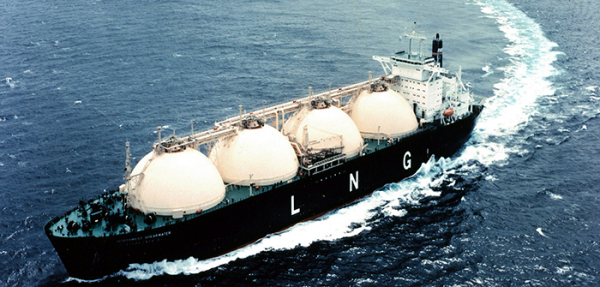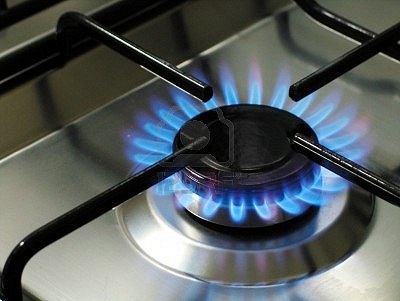NLC, MAN, others kick against electricity tariff hike
 • Labour vows to resist, warns NERC against playing the ostrich
• Labour vows to resist, warns NERC against playing the ostrich
•Hike can contract economy in Q3 & 4 – MAN
• Inspire confidence in consumers through metering – LCCI
Electricity consumers, labour unions and key stakeholders in the economy on Tuesday kicked against increase in electricity tariff implemented by power distribution companies across the country on Tuesday.
Those that spoke to The Punch on the tariff adjustments included the Nigeria Labour Congress which vowed to resist the increase, the Manufacturers Association of Nigeria which said the hike could precipitate recession in the third quarter of the year, the and the Lagos Chamber of Commerce and Industry.
The NLC said the hike would further impoverish Nigerians.
The congress argued that the implementation of the new tariff on Tuesday was despite the resolution of the Senate and the direct orders of the President, Major General Muhammadu Buhari (retd), that the decision by the electricity distribution companies on tariff should be suspended until further notice.
NERC and the Discos had said that the new service reflective tariff took effect from September 1 (Tuesday).
The Discos said on Tuesday that electricity customers, except those receiving less than 12 hours of supply, would have to pay more.
With the review, the tariffs being charged residential consumers receiving a minimum of 12 hours of power supply has increased by over 70 per cent.
The NLC President, Ayuba Wabba, said the move would be resisted and cautioned the DISCOs against going ahead with the implementation of the new electricity tariff.
He stated this in a statement on Tuesday titled ‘Increase in electricity tariff by Abuja DISCO – A taunting of the will of the Nigerian people gone too far’.
Wabba said, “The DISCOs appear to have given themselves the ignoble tasks of taunting and testing the will of the Nigerian people.
“Abuja DISCO has adorned the robe of the protagonist with its recent announcement of a new tariff plan for electricity consumers within the sphere of its service area.
“This move is despite the resolution of the Senate of the Federal Republic of Nigeria and even the direct orders of Mr President himself that the plans by DISCOs to hike electricity tariff should be suspended until further notice.
“We are not aware of any order by the government or the elected representatives of the Nigerian people de-freezing the order to suspend any plans to inflict more pocket and psychological trauma on Nigerians by way of reckless and insensitive hike in electricity tariff.”
The union pointed out that since the unbundling of the defunct Power Holding Company of Nigeria, electricity tariffs through the Multi-Year Tariff Order had been increased a number of times without accompanying improvement in services.
“Each hike in electricity tariff in Nigeria is trailed by huge leap in the hours of darkness, de-metering of more Nigerians, exponential rise in incidences of estimated billing, and increased burden on citizens for the procurement of equipment and facilities for public electricity supply amidst other devious methods by DISCOs to cheat, exploit and despoil poor Nigerians,” Wabba said.
The NLC boss said it totally rejected any plan to inflict further pain on Nigerians “at this very time of great economic distress,” insisting that “the new dribble by the Abuja DISCO is dead on arrival as it will be resisted by the Nigerian working class and people.”
It warned other DISCOs not to bother “putting their ships of exploitation to sail.”
The congress equally expressed concern on the “deaf and dumb posture” of the Nigeria Electricity Regulatory Commission.
The union added, “It is important to put it on record that NERC would be putting its name on the wrong side of history if it continues to play the Ostrich while a group of portfolio investors make a blood meal of Nigerians.
“Nigerian electricity consumers need the NERC to speak up and act in the defense of the rights of the Nigerian people.”
“Following consultations and directions on tariff policy, the commission hereby approves a deferment of the applicable tariffs for customers in service bands D and E (that is customers with a service commitment of less than an average of 12 hours supply per day over a period of one month) for the period September 1, 2020 to January 1, 2021,” NERC said in a document seen by The PUNCH.
It said the Discos would only be allowed to charge those customers the new tariffs upon investments that improve the quality of service experience, “thus migrating customers to higher service bands or another order of the commission.”
According to NERC and the Discos, the new tariff is based on the hours of electricity supply available to the customers.
Customers are categorised into maximum demand and non-maximum demand customers, as against the previous categories of residential, commercial and industrial customers, with different bands (A to E) depending on the level of supply.
Maximum demand customers are those who consumer high levels of electricity, within the threshold of 45kVA consumption and above, according to NERC.
For Ikeja Electric, a residential customer on single phase receiving a minimum of 12 hours of supply will now pay N42.73 per kilowatt-hour, up from N21.30 per kWh.
For Eko Electricity Distribution Company, a residential customer on single-phase receiving a minimum of 12 hours of supply will now pay N43.01 per kWh, up from N24 per kWh.
For Abuja Electricity Distribution Company, a residential customer on single-phase receiving between 12 to 16 hours of supply will now be charged N45.69 per kWh, up from N24.30 per kWh.
Kaduna Electric announced on Twitter on Monday night that residential customer on single-phase receiving between 12 and 16 hours will be charged N50.10 per kWh, compared to the old tariff of N26.37 per kWh.
A residential customer receiving a minimum of 12 hours of supply from Ibadan Electricity Distribution Company will now pay N53.97 per kWh, up from N24.97 per kWh.
The Director-General, Lagos Chamber of Commerce and Industry, Mr Muda Yusuf, said it was important to inspire the confidence of electricity consumers through a robust metering programme and guarantee of value for money.
According to him, for investments in the power sector, cost-reflective tariff is inevitable.
“The alternative is to classify electricity provision as social good which only the government could provide or subsidise,” Yusuf added.
The acting Director-General, Manufacturing Association of Nigeria, Mr Ambrose Oruche, said the hike may contract the economy in third and fourth quarter.
He said, “This is not an appropriate time to increase the tariff because we are still in COVID-19 era, where businesses are being threatened by COVID-19, many jobs are being lost and you are increasing tariff on electricity, important aspect that is not even available.
“It should have first been available so that businesses can come back and then you increase tariff.
“You can’t put the cart before the horse and that is what we have been putting cart before the horse.
“It will have a negative effect on the economy. It may lead to further contraction of the economy by the third quarter and even fourth quarter.”
The National President, Electricity Consumers Association of Nigeria and Director, Energy and Utilities Advocacy Centre, Mr Chijioke James, said it was insensitive for the government to increase electricity tariff when supply had not improved significantly and at a time of economic hardship.
He said, “Consumers do not support tariff increase at this time, particularly now that we are yet to attain stable and satisfactory energy supply to consumers nationwide that will encourage consumers to pay an increased tariff.”
The Secretary-General, Nigerian Electricity Consumers Advocacy Network, Uket Obonga, told one of our correspondents in Abuja that the hike in energy bills as approved by government was unfortunate.
He described the tariff hike by government as policy summersault, adding that the government hurriedly set up a tariff review panel in the presidency and got a few individuals involved, who produced a report in two weeks.
PUNCH






